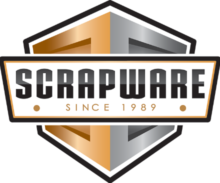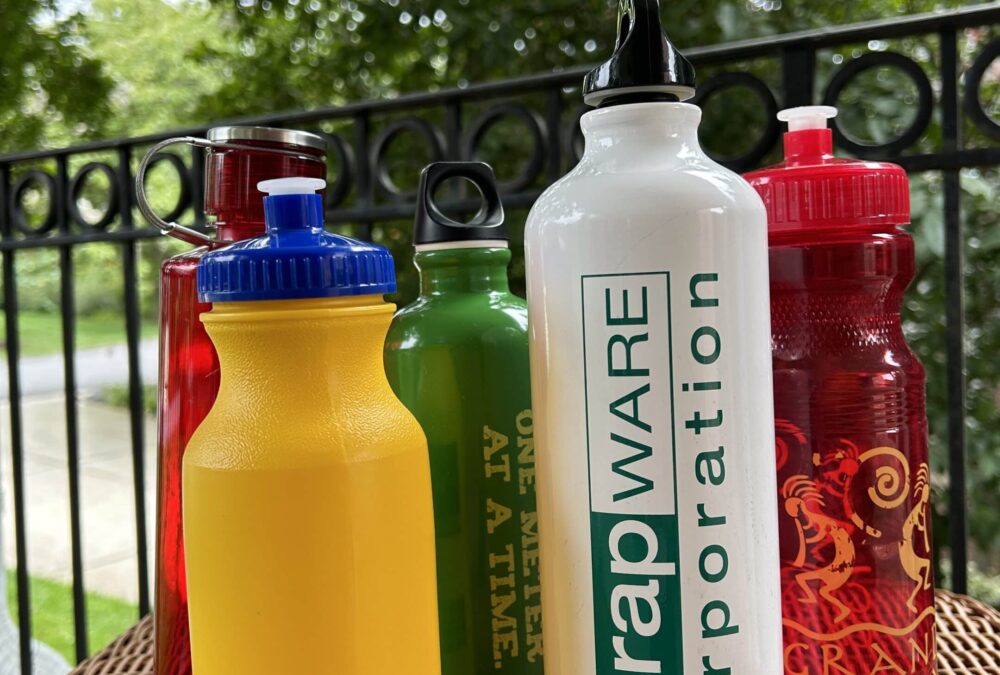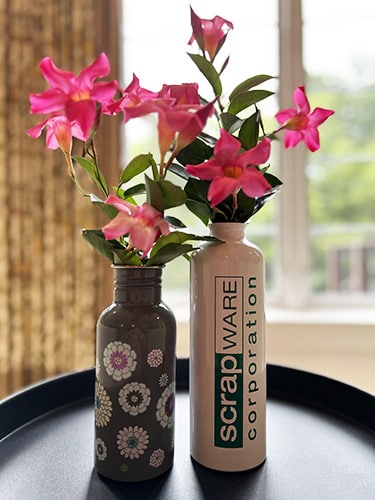The twin goals of staying hydrated and helping the environment have led to the proliferation of reusable water bottles.
They are carried everywhere in a variety of styles, colors and materials. When people are ready to retire their reusable water bottles, many hope to recycle them to avoid tossing them in the trash. That choice, however, may not be as simple as it seems.
Below are some helpful considerations about recycling reusable water bottles.
Why Reusable Water Bottles?
Health-minded, mobile consumers want the convenience of bottled water. But, according to the website WebMD, more than 60 million single-use disposable plastic water bottles are thrown away every day in the U.S., with many headed for landfills. Recycling disposable plastic bottles is important, but unlike glass and metals, plastic can’t be endlessly recycled. Some bottles that escape the trash stream end up in our waterways and oceans endangering wildlife. Consumer awareness about the environmental problems posed by single-use plastic bottles has propelled the sale of reusable water bottles.
What types of reusable water bottles can be recycled?
The good news is that virtually all reusable water bottles can be recycled. Below is a list of common water bottles and tips for how to recycle them.
- Plastic – Recycling reusable plastic bottles is relatively easy. If a water bottle is made from plastic, it will have a number 1 through 7 in a recycling triangle on the bottom. Many municipalities accept most of these plastic bottles in their curbside recycling bin. One exception is number 6, which is polystyrene foam. To confirm you can put your bottle in the curbside bin, do a quick internet search of recycling guidelines for your city or country.
- Metal – Recycling reusable metal bottles will depend on what the bottle is made of. Most metal bottles are made from aluminum, stainless steel and a smaller number are made from copper. While all these metals are fully recyclable, not all are accepted in your curbside collection bin.
- Aluminum: The most easily recycled bottle is aluminum. Aluminum is what most food and beverage cans are made of, so they generally are accepted in residential recycling pick ups. One way to tell a bottle is aluminum is to test it with a magnet. If the magnet is not at all attracted to the metal, and it is relatively lightweight, it is most likely aluminum.
- Stainless steel: Stainless steel bottles are also very popular, but they often can’t be accepted in curbside recycling programs. That is because stainless steel can be very hard to crush and therefore causes problems with some collection trucks that crush metal as it is collected. Check your local recycling program to see if it collects stainless steel. If not, it can be taken to a scrap metal recycling facility. Most stainless steels are also not magnetic, although some alloys may be weakly attracted to a strong magnet.
- Copper: This metal is also easily recyclable but must be taken to a recycling center or scrap metal recycling facility in most municipalities. A good strategy is to save your stainless steel and copper items and take them to a scrap yard which will pay you for your metal.
- Glass – Glass reusable water bottles are fully recyclable and are collected curbside in almost all recycling programs.
- Silicone – Reusable water bottles made from silicone are not as common or popular. They are not accepted in many recycling programs, but there are private companies that are starting to recycle silicone, like Eco USA. Some companies that manufacture silicone bottles are allowing customers to return them at the end of their useful life to be recycled. Check the internet for companies and send-back programs that will recycle silicone.
Repurposing reusable water bottles: Reusable water bottles can be repurposed in a variety of ways as an alternative to recycling them.
Below are options for re-using a reusable water bottle.
- Use like an ice pack for food and drinks on the go. Fill the bottle, freeze, and place in your cooler to keep snacks and beverages cold.
- Mix drink and food mixes without a spoon. For powdered drinks like lemonade or ice tea, place the powder in the water bottle, fill with water, close the lid and shake. When camping, place a dried food mix like soup in the bottle, add water, shake, pour into a pan and heat.
- Water plants around your house and yard.
- Refill pet bowls.
- Fill with spare change and use it as a bank.
- A metal water bottle makes a great rolling pin.
- Use as a container to carry dry snacks like nuts or trail mix.
- Use as a vase. Fill with water and fresh flowers and display either inside or on outdoor furniture.
Finally, if your reusable water bottle is in fine shape to be used for many more drinks, donate it to charity. It will give another thirsty person the opportunity to take water on the go in an environmentally friendly way!
About ScrapWare Corporation: Since 1989, Rockville, Maryland-based ScrapWare Corporation has been the software of choice for the recycling industry. Its ease of installation and simplicity saves users time and money while helping them achieve compliance and maintain accurate business insights. With state-of-the-art functionality that‘s tailored to each organization’s unique requirements, ScrapWare is an advanced dynamic software solution that alleviates the most pressing recycling industry worries. For more information, please call (301) 517-8500 or visit https://www.scrapware.com/.


